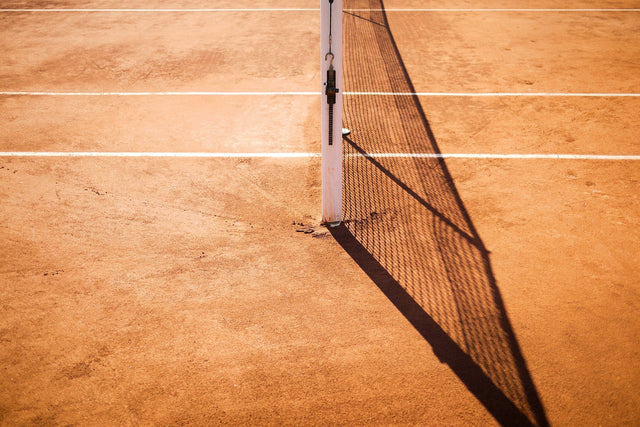On July 5, 1980, one of the most legendary Wimbledon finals of all time took place. Swedish tennis player Björn Borg faced his American challenger John McEnroe in a thrilling battle for the title. After a nerve-wracking five-setter, including an 18-16 set tiebreak in the fourth set, Borg succeeded in winning his fifth consecutive Wimbledon title. This confirmed his status as one of the greatest tennis players of all time and further cemented his reputation as the " Iceman " of tennis . McEnroe was not only an iconic duel in tennis history, but also proved once again Borg's dominance on the hallowed grass in London.
Name: Björn Borg
Nationality: Swedish
Born on: June 6, 1956
Tennis hand: Right
Current ranking: Retired in 1982
The rise of a tennis phenomenon
When you think of tennis, Björn Borg automatically comes to mind. The Swede was born in Södertälje , and after initially playing sports like football and ice hockey, he started playing tennis at a young age. He quickly became one of the greatest talents of his generation, making his debut for the Swedish Davis Cup team at the age of sixteen. His professional breakthrough followed quickly, as in 1974 – at just eighteen – he won his first Grand Slam title at Roland Garros . This marked the beginning of an unprecedented string of successes for Björn Borg as a clay court tennis player, where he ultimately won Roland Garros six times.
First and only player to win the Channel Slam three times in a row
However, he wasn't limited to clay. Björn Borg's strength as a tennis player lay in his exceptional ability on two completely different surfaces: clay and grass. Along with his six titles at Roland Garros , he also won five consecutive Wimbledon titles between 1976 and 1980 on the faster grass court. These impressive achievements made him the first—and to this day, only—player to achieve the Channel Slam title for three consecutive years. This is the term used when a player wins both Roland Garros and Wimbledon in the same year.
Börg 's dominance at Wimbledon was truly exceptional. From 1976 to 1980, he managed to lift the trophy year after year, despite fierce competition. His rivalry with McEnroe culminated in the classic Wimbledon final described above. A year later, in 1981, the two tennis legends met again in the final, and this time it was McEnroe who defeated Borg. This moment proved to be a turning point in Björn Borg's career.
Sudden end to Borg's career
To the great surprise of the entire tennis world, Borg announced his retirement in 1982, at the age of only 26. Despite his unprecedented success, he had lost his motivation and chose to retire from the sport. Borg wanted to free up more time for his wife, Mariana. Simionescu , who was also a tennis player, disliked the extensive travel that tennis players can't avoid. This was also the reason he only competed once in the Australian Open (1974). Despite the Swede's attempt to return to the professional circuit in the 1990s, Borg failed to match his previous level. Thus, Borg's successful career, which perhaps had much more potential, ended prematurely.
Impact on tennis still noticeable
Although his professional career was relatively short, Björn Borg's influence on tennis was undeniably significant. Borg inspired generations of tennis players, and his impact on the sport is still felt today. His record of six Roland Garros titles was broken years later by Rafael Nadal, and his dominance at Wimbledon also remained unmatched for years. The rivalry with McEnroe was later filmed in Borg vs. McEnroe , a film that perfectly captures the intensity of their legendary duels. Borg also remained involved with tennis after his career, both as a coach and as an entrepreneur.
More stories



